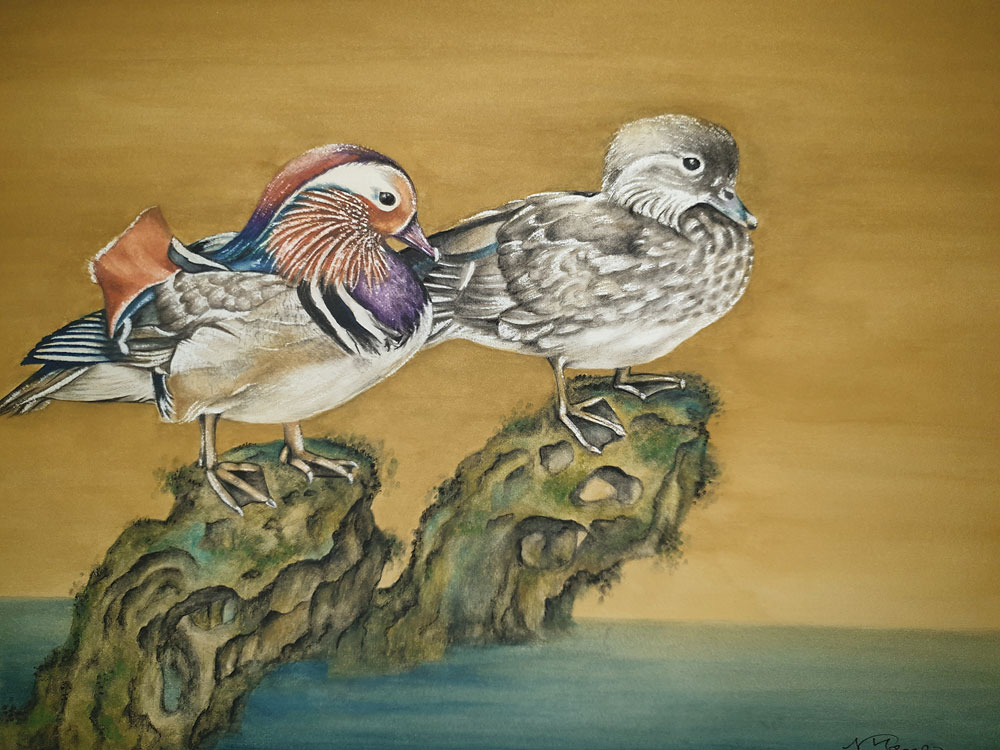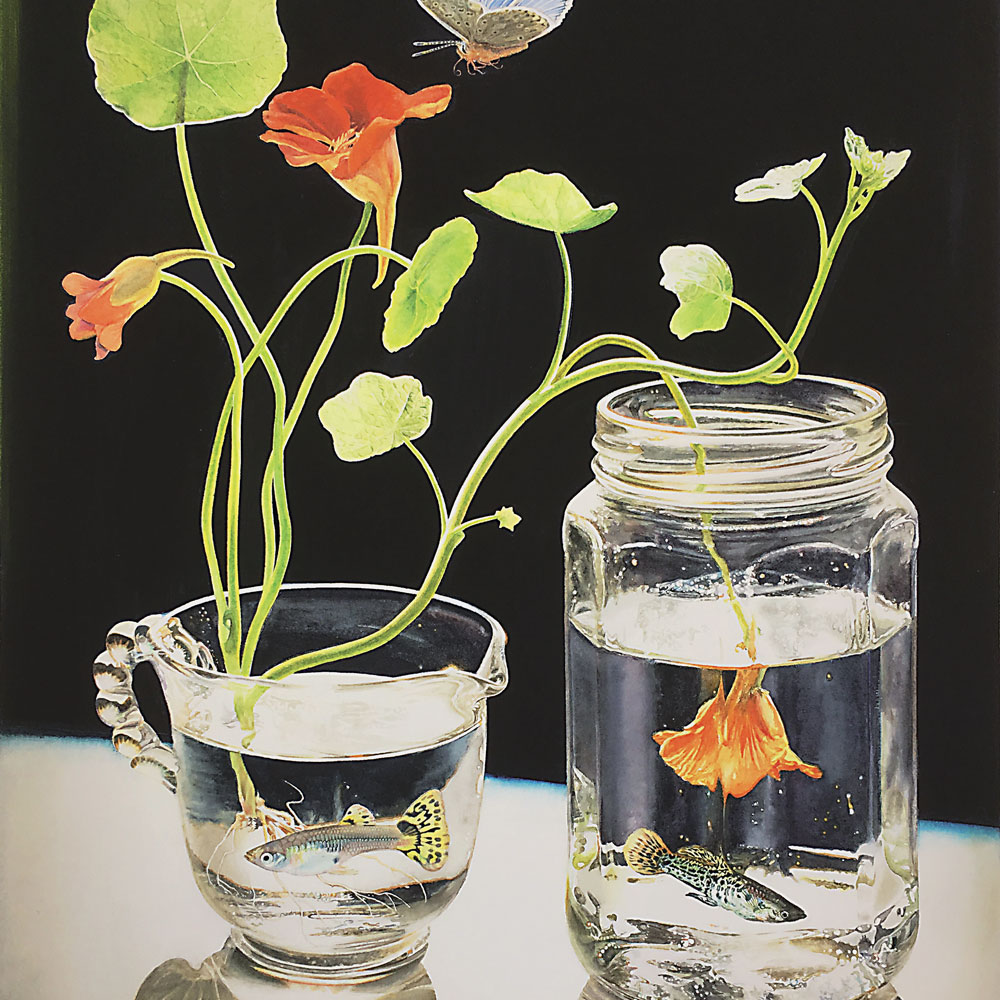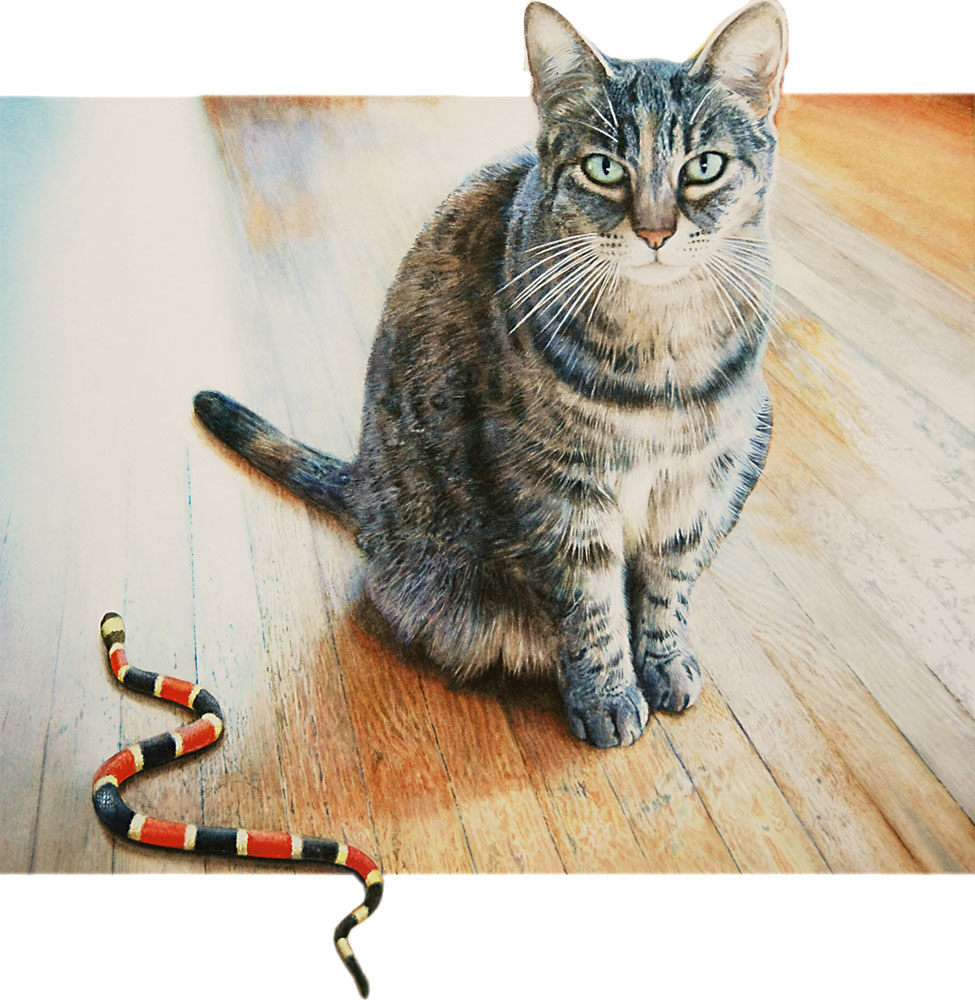
Editors’ note: This article from the fall 2019 edition of the Nonprofit Quarterly was first published by Nonprofit AF on September 8, 2018. It has been lightly edited for republication here.
Let’s talk about ducks.
If you’re in the nonprofit sector, you may be thinking, “ducks? What are you talking about? I thought we’re all unicorns.” Yes, yes, we are all unicorns. We are magical unicorns who make the world better by using our horns of equity to stab injustice in the face. But we’re also ducks. Just bear with me.
In the last few months, I’ve been thinking about a bunch of things. Mainly, “Powdered alcohol has been invented?1 NOOOO! That was my idea two decades ago! I could have been rich by now!”
But I’ve also been thinking about the community-centric fundraising model, and why we each do the work we do.2 This has been triggered in part by the increasing cultivation of individual donors I’ve been doing. It is humbling to sit down with donors and ask them to invest a large chunk of hard-earned money so we can do our work. Donors have been kind and gracious and generous, and my team and I are genuinely grateful for every gift.
Othering the People We Serve
However, recently I have started noticing that many of us have unconsciously created an unhealthy dynamic between our clients and our donors and funders. Without realizing it, we often reinforce this image of donors as nice people standing at a lake throwing bread at hungry ducks in the water. “Your bread helped fifty ducks,” we say. “Because of you, fifty ducks are now not going to die of starvation.” During fundraising events, we may ask clients to tell compelling, sometimes harrowing stories. Video images of hungry kids may be shown to tug at our sense of pity and compassion.
This is a dynamic that’s been weighing on my mind as much as the instant-whisky powder that could have made me a millionaire. How much do we as nonprofits, who stand in the middle between foundations/donors and communities, unconsciously perpetuate the notion that the people we serve are “others”?
Honestly, there’s been a lot of “othering” going around in society in general. For example, there is a lot of education inequity in Seattle, with glaring gaps between schools with wealthier families and schools where most of the kids are on free or reduced-price lunch. Some schools can raise $300K in one night; others work for months to get a grand or two in a donated-books sale. One school, with 95 percent low-income kids, e-mailed an organization whose board I was on at the time, the Southeast Seattle Education Coalition—and asked for $75 to pay for food for a parents information night. They could not afford $75 to buy spaghetti. Subtle suggestions of, “Hey, parents from wealthier families, why don’t you share some of your money with less-resourced schools?” have often been met with, “Sorry, we are investing in our own kids.”
I want to tell these parents, “Hey, guess what? Your kids are going to grow up, and they’re going to MARRY OTHER PEOPLE’S KIDS. So maybe you should invest in those kids as well.”
Sign up for our free newsletters
Subscribe to NPQ's newsletters to have our top stories delivered directly to your inbox.
By signing up, you agree to our privacy policy and terms of use, and to receive messages from NPQ and our partners.
This is an important shift that I hope to see more of in our sector: getting people to understand that we are one community—that none of us is standing on the edge of the lake feeding ducks. All of us are ducks sharing one lake, and our fates are tied to one another’s. Considering the challenges we are facing as a community, it is more critical than ever that we get donors and funders to understand how the well-being of people who look completely different from them, or who are geographically far away, or who speak other languages, affects these donors’ and funders’ own well-being.
The Nature of Selfishness
To build strong communities, which I think is the vision that all of us in this field share, we each have to examine our own motivations for doing this work. Recently, I was talking to some colleagues in the field about why they entered the sector. “This is stressful work,” said one—and I’m paraphrasing—“but I have to remember that I’m not doing this for me. We have to be selfless and think of others. This is not about me. This is about the community.” Another colleague agreed.
I had to chime in and say that I don’t think selfishness is all that bad. I am totally doing this work for me. I have a kid, and another one on the way. I want my kids to grow up in a safe neighborhood. I want to be able to walk down the street and see art and hear music. I want trees and pandas to exist in the world so I can visit them—trees and pandas are awesome. I want the world to be safe and diverse and vibrant, because I personally am planning to grow old in it and enjoy the hell out of it before I die in it, probably from a teleportation machine malfunction on my way to visit Mars.
In the context of our work, I think self-interest can be a force for good, and we need to remind ourselves and our donors that all of us have personal stakes in what everyone else in the world is experiencing. We all personally benefit when other people’s kids do well (because our kids marry and otherwise interact with one another); when our elders are taken care of (because we are all growing old); when our environment thrives (because we all breathe air and drink water); when people in other countries are successful (because we like to travel and eat stuff); when there are fair laws; when people have stable jobs and housing; when there is lots of art and poetry and music; et cetera. When we help people, we also each personally benefit, and this enlightened self-interest within the collective good is what will allow us to build our ideal world—not the patronizing notion of selflessness, pity for the “others,” and old-school charity.
I’m a Duck, You’re a Duck
I’ve been thinking about the dynamics between foundations and nonprofits,3 between donors and nonprofits,4 and between nonprofits and other nonprofits.5 And honestly, despite the many counterexamples, sometimes it gets really discouraging just how contentious, adversarial, and generally unhealthy these relationships oftentimes are. (So discouraging, that I wish I had a cup or two of powdered rum to mix into my soy latte.)
As our challenges multiply and the illusion of resource scarcity increases its grip on our communities, I see more and more turfiness and other symptoms of a survival mindset. And we nonprofits often perpetuate this sort of mindset without realizing it. In order to survive, we divide ourselves into “us” and “them.” We must examine areas where we are doing this and cut it out. And we must examine whether we see and treat our clients as “others” and whether we are inadvertently passing this mentality on to donors, volunteers, even our clients.
The success of our world depends on us all believing that we are all interconnected. And if there’s one sector that can get everyone to understand and buy into the idea that our well-being is tied to one another’s, it is ours. Only when we get people to realize that we are all ducks, can we all be unicorns.
Notes
- Brent Rose, “We Experimented With Powdered Alcohol So You Don’t Have To,” Science, Wired.
- Vu Le, “Winter is coming, and the donor-centric fundraising model must evolve,” Nonprofit AF blog, April 20, 2015.
- Vu Le, “The Wall of Philanthropy, Wildlings, and White Walkers,” Nonprofit AF blog, September 9, 2013.
- Le, “Winter is coming, and the donor-centric fundraising model must evolve.”
- Vu Le, “The Nonprofit Hunger Games, and what we must do to end them,” Nonprofit AF blog, August 3, 2015.











